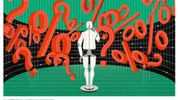Foxconn has laid down a challenge to auto manufacturers whilst it is also wise to remember that despite being Apple's largest supplier Apple is still the controlling force in Smartphones rather than Foxconn. Tesla also sources most of its components from Taiwanese suppliers but is the electric vehicle (EV) pioneer with most momentum today.
Nevertheless, Foxconn has formed an impressive ecosystem for EVs and autonomous vehicles (AV).
A fact that should not escape insurers planning to work with auto OEMs to share the data needed to deliver optimal products and services to customers
"In a matter of just months, Foxconn has assembled more than 1,200 member companies in MIH, from software giants like Arm to auto suppliers like German plastics parts maker Konzelmann. It has also set up joint ventures with Chinese and Taiwanese carmakers, is working on a partnership with Stellantis, the car group formed by the merger of FCA and PSA, has a co-operation agreement with Chinese electric vehicle company Byton and signed a deal to manufacture for US electric vehicle designer Fisker from late 2023."
Kathrin Hille, Kana Inagaki & Peter Campbell in FT 17th May 2021
The Foxconns of this world are making this ambitious push into the automotive supply chain heralding a turning point in industrial history: the integration of two of the world’s largest industries — car manufacturing and electronics — which will both change beyond recognition.
This directly impacts auto insurers as they want auto manufacturers to share data from ADAS and eCall software to better price risk and offer the right products. But who will those manufacturers be? Tesla or Foxconn? VW and Volvo with their own EV platforms or GM and Hinda with shared EV platforms.
A growing number of countries have set dates for phasing out petrol and diesel fuel cars, making the rise of the electric vehicle inevitable. And although EVs look similar from the outside and perform a similar function for consumers, they are completely different on the inside, leaving traditional carmakers with a stark choice: either rapidly acquire new capabilities in electrical engineering and software or retreat from manufacturing. The electronics companies targeting the automotive supply chain, meanwhile, need to pick up new mechanical capabilities and entirely different safety concepts.
The supply chains of the future will be different from those of the future. Vehicle manufacturing demand far higher safety standards. “The zero-defect concept is very difficult for an electronics company to comprehend,” says Yancey Hai, chair of Delta Electronics. “It is OK to crash this computer — you can reboot it. For cars, no way.”
On the other hand, EVs are far simpler in many ways than today’s internal combustion engine vehicles.
“The number of components is expected to decline from 30,000 in an internal combustion engine car to 20,000 in an electric vehicle,” says Akihiko Shido, chair of Yorozu, a parts supplier for Nissan. “If there are fewer components and there is no need for tailoring them, the entry barrier will be lower, and we can expect new players to come in.”
Industry experts say two big trends are set to transform the auto industry: the different form and structure of EV components, which simplify car design; and vehicles’ growing computing content, which requires a consolidation of functions that have traditionally been scattered among different suppliers.
The evolution of in-car computing, from infotainment systems and the dashboard to today when they cover every automotive function, has made integration more pressing. This will become even more urgent when the industry moves to self-driving vehicles that rely on software that needs to be continually updated.
Both the carmakers and their leading parts suppliers such as Bosch, Continental or GKN are keenly aware of the challenge. As early as 2015, Continental acquired the automotive business of Finnish software company Elektrobit Corporation, for €600m, and later bought Israeli cyber security company Argus for $430m in a 2017 deal that helped it beef up its software capabilities with the addition of hundreds of engineers. Arno Antlitz, Volkswagen’s chief financial officer and head of IT, says the company will increasingly develop its own software, as part of a $30bn effort to bring more technology in-house.
Will today’s auto OEMs become no more than enterprises focussed on brand management and customer service.
The Apple “manufactured in China but designed in California” tagline? Foxconn is planning manufacturing of EVs in the USA and elsewhere so auto OEMs could have the best of both worlds.
They could tackle the whole vehicle lifecycle from point of sales/lease and embedded insurance, maintenance, repair, roadside assistance and replacement vehicle in case of road traffic accidents, infotainment and other services from the technology stacks, vehicle/software upgrades and mid-term adjustments, a total customer service package focussed on the customer.
Culminating in autonomous vehicles, RoboTaxis and a mix of car ownership and mobility-as-a-service id different areas and regions.
Where will today’s insurers stand in this evolving scenario especially as decentralised finance (DeFi) and risk mutualisation models also disrupt insurance markets?
This is where a new breed of CEO and C-Suite Leaders will steer carriers, brokers, and reinsurers towards an Insurer3.0 world. Probably just 15% to 20% that take leadership positions in the complex ecosystems emerging from the trends described above.
There’s food for thought.
Foxconn is spearheading an entire class of electronics companies vying for a role in the carmaking industry. Pegatron, another of the Taiwanese companies that began life making iPhones, is now assembling parts for electric cars for Tesla. Delta Electronics, a Taiwanese manufacturer of a wide range of power electronics components, makes EV charging modules and powertrains — the components that convert the engine’s power into movement.
https://www.ft.com/content/b229250d-5d9e-4bb1-bb91-e57888233a98








